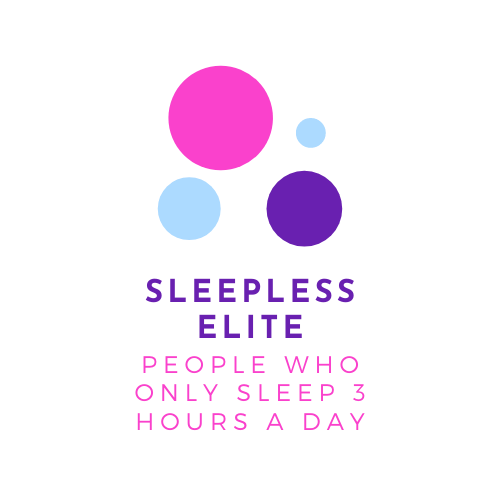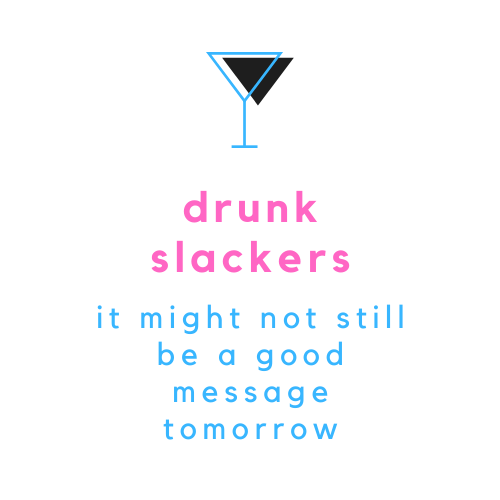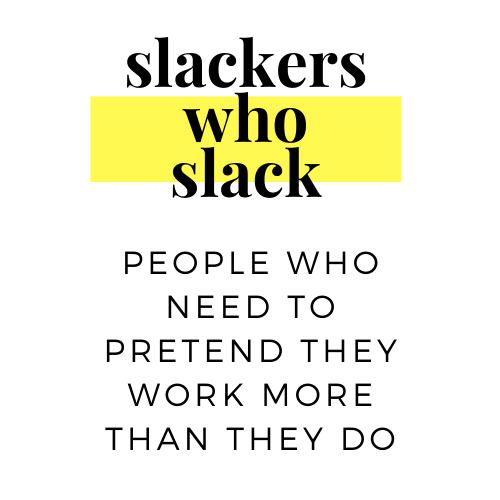How Our Slack App Got to 200K Users with No Marketing Whatsoever
We created a free Slack message scheduler & didn't market it. Yet, somehow, we have 200k users & counting. What does that tell us?
Once upon a time, we created a Slack app and didn’t really tell anyone about it.
We subjected it to a lonely existence, letting it live, primarily unpromoted, in the Slack app directory until one day, for some reason, people started downloading it…

We called it Message Them Later. It’s a free Slack message scheduler that’s really easy to use. All you need to do is type /schedule or /later right in the message composer, type your message, and then include a time/date.
You can write something like:
/schedule How did the meeting go? At 2pm on Wednesday
Your message will be sent at 2pm on Wednesday (obviously 😉), and you’ll appear to be a very diligent and thoughtful colleague for remembering your teammate’s important meeting on Wednesday afternoon.
You can view all of the messages you’ve queued up by typing /schedule-list and edit or delete them, which is really useful if you like to Slack during happy hour or schedule messages when you’re angry.
Recently, we also added a new feature that lets you schedule messages to be sent after the other user’s ‘do not disturb’ time is over using /nonurgent [message]. Cheers to being less annoying!
We think Message Them Later is a super useful, simple, and agency-increasing tool. The idea spawned from a need we had, which we suspected thousands, if not millions of other people also had.
But because we weren’t trying to make money off of it and we got wrapped up in other things (we’re creating other cool stuff all the time), we barely spent any time marketing it, aside from one or two posts on LinkedIn and Twitter, and didn’t put money into it either. This was a fun side project for us at our agency, AE Studio, that was a bit different from the client work we were doing.
Yet somehow, we now have 200,000 users, and we’re gaining more every month. What does that tell us?
- The internet is, like, really powerful. You already know that based on the fact that teenagers are making millions of dollars on TikTok with wildly unimpressive dance moves. But our example shows that if you have an excellent idea that helps solve a problem many other people have, and you execute it in a straightforward, intuitive way, there’s a good chance that people will want what you're putting out there.
Someone will find it, use it, and love it, and it will snowball from there. Of course, you won’t always get as many users as you want organically—but people do catch on to good ideas.
We know that not only because we gained 200k users organically, but also because there are a bunch of other Slack message schedulers out there now. (Ours is still the best—don’t get it twisted.) A few of them are charging money for the service, which means…
2. We can monetize this thing. Do we need to? Nope. We built Message Them Later because it’s a fun, agency-increasing tool, and we love making those kinds of things. Plus it’s something we use here at AE Studio all the time. It’s helped us remember things and communicate more effectively by sending messages at the right time. So if nothing else, it’s become an internal tool that we rely on.
We could monetize it though, considering other developers are doing it, and we have a significant amount of users. We could try:
- A freemium model, in which the app is free to install and download, but we charge money for additional features.
- Charging for personal use or team use, with different pricing models based on the number of users
- Creating a monthly or annual subscription model
- Selling ad space on Message Them Later’s website if we become popular enough.
We could also monetize in more indirect ways, leveraging the app to send users to our website for inquiries and generate more brand awareness. We might add a pop-up message that includes our website and contact info when users schedule a message. Maybe in that pop-up, we’d highlight some products we’re building or company news, tell jokes, send memes, or include our favorite agency-increasing tips.
Considering we tout Message Them Later as an app for people who don’t want to be annoying, it’d be pretty hypocritical of us to begin annoying people with pop-up messages. We’ll need to make them funny and engaging and pretty sporadic so they’re not popping up every day. That would suck.
3. We’d probably have a lot more users if we marketed it. Since we brought in 200k organically and we’re continuing to grow, we can assume that some promotion would do us some good. Clearly people like the product, so if we could get it in front of more eyes, we’d see more downloads.
Messagethemlater.com is where people can learn about the app outside of the Slack directory, and we think the messaging on the site might’ve contributed to a lot of our downloads because it’s really relatable. It gives visitors a peek into the origin of the idea, that we created the app for
- The Sleepless Elite: People who only sleep 3 hours a day (which may or may not be at night)
- Drunk Slackers: That message might not sound great tomorrow morning
- Slackers Who Slack: People who need to pretend they work more than they do
- Slacking Dalai Lamas: 4am meditating messengers
- Overachievers Anonymous: You’re still working, but no one else is.
We’re sort of being sarcastic, but sort of not. We think that’s what users so far have connected to, and we think this messaging will resonate with future users. It’s always a good idea to think about what people relate to.



The Case for Non-Monetization
Ok, so we have a decent number of users and people like us, but does that mean we should monetize? For now, we don’t think so. Here’s why:
- We risk losing our OG users. We don’t want to do that—those are the ride-or-dies who believed in us and use our product every day. They deserve our loyalty. If suddenly, they have to pay for something they’ve been using for free daily, they’ll probably say ‘SCREW THIS’ and delete us from their lives forever.
A lot of our current users probably like us enough to pay, but do we really want to do that to them if we’re not strapped for cash?
2. We might accidentally annoy people. If we don't get our advertising and marketing right, people might stop using the app and we could get a bad rep, which would make people less likely to work with us or use our products in the future. It’s essential that anything we add to the app actually provides some value to the user while simultaneously generating brand awareness. The user needs to remain top of mind at all times.
3. We become sellouts 😑. Monetizing through pop-up messages or fees kind of ruins the integrity of the whole thing. Again, we built Message Them Later to solve a problem—and we had fun making it. We don’t want or need everything to have some sort of cash value attached to it. There’s already plenty of value in coming up with a good idea and knowing other people like it too.
Sometimes, though, we can’t help but wonder if we’re underutilizing a great product and missing out on a good opportunity to make some $$. We’re keeping our options open, and we’re excited to see how The Story of a Slack App unfolds. What do you think? Monetize or no? Advertise or no? Let us know! 👍👎
No one works with an agency just because they have a clever blog. To work with my colleagues, who spend their days developing software that turns your MVP into an IPO, rather than writing blog posts, click here (Then you can spend your time reading our content from your yacht / pied-a-terre). If you can’t afford to build an app, you can always learn how to succeed in tech by reading other essays.
How Our Slack App Got to 200K Users with No Marketing Whatsoever
We created a free Slack message scheduler & didn't market it. Yet, somehow, we have 200k users & counting. What does that tell us?
Once upon a time, we created a Slack app and didn’t really tell anyone about it.
We subjected it to a lonely existence, letting it live, primarily unpromoted, in the Slack app directory until one day, for some reason, people started downloading it…

We called it Message Them Later. It’s a free Slack message scheduler that’s really easy to use. All you need to do is type /schedule or /later right in the message composer, type your message, and then include a time/date.
You can write something like:
/schedule How did the meeting go? At 2pm on Wednesday
Your message will be sent at 2pm on Wednesday (obviously 😉), and you’ll appear to be a very diligent and thoughtful colleague for remembering your teammate’s important meeting on Wednesday afternoon.
You can view all of the messages you’ve queued up by typing /schedule-list and edit or delete them, which is really useful if you like to Slack during happy hour or schedule messages when you’re angry.
Recently, we also added a new feature that lets you schedule messages to be sent after the other user’s ‘do not disturb’ time is over using /nonurgent [message]. Cheers to being less annoying!
We think Message Them Later is a super useful, simple, and agency-increasing tool. The idea spawned from a need we had, which we suspected thousands, if not millions of other people also had.
But because we weren’t trying to make money off of it and we got wrapped up in other things (we’re creating other cool stuff all the time), we barely spent any time marketing it, aside from one or two posts on LinkedIn and Twitter, and didn’t put money into it either. This was a fun side project for us at our agency, AE Studio, that was a bit different from the client work we were doing.
Yet somehow, we now have 200,000 users, and we’re gaining more every month. What does that tell us?
- The internet is, like, really powerful. You already know that based on the fact that teenagers are making millions of dollars on TikTok with wildly unimpressive dance moves. But our example shows that if you have an excellent idea that helps solve a problem many other people have, and you execute it in a straightforward, intuitive way, there’s a good chance that people will want what you're putting out there.
Someone will find it, use it, and love it, and it will snowball from there. Of course, you won’t always get as many users as you want organically—but people do catch on to good ideas.
We know that not only because we gained 200k users organically, but also because there are a bunch of other Slack message schedulers out there now. (Ours is still the best—don’t get it twisted.) A few of them are charging money for the service, which means…
2. We can monetize this thing. Do we need to? Nope. We built Message Them Later because it’s a fun, agency-increasing tool, and we love making those kinds of things. Plus it’s something we use here at AE Studio all the time. It’s helped us remember things and communicate more effectively by sending messages at the right time. So if nothing else, it’s become an internal tool that we rely on.
We could monetize it though, considering other developers are doing it, and we have a significant amount of users. We could try:
- A freemium model, in which the app is free to install and download, but we charge money for additional features.
- Charging for personal use or team use, with different pricing models based on the number of users
- Creating a monthly or annual subscription model
- Selling ad space on Message Them Later’s website if we become popular enough.
We could also monetize in more indirect ways, leveraging the app to send users to our website for inquiries and generate more brand awareness. We might add a pop-up message that includes our website and contact info when users schedule a message. Maybe in that pop-up, we’d highlight some products we’re building or company news, tell jokes, send memes, or include our favorite agency-increasing tips.
Considering we tout Message Them Later as an app for people who don’t want to be annoying, it’d be pretty hypocritical of us to begin annoying people with pop-up messages. We’ll need to make them funny and engaging and pretty sporadic so they’re not popping up every day. That would suck.
3. We’d probably have a lot more users if we marketed it. Since we brought in 200k organically and we’re continuing to grow, we can assume that some promotion would do us some good. Clearly people like the product, so if we could get it in front of more eyes, we’d see more downloads.
Messagethemlater.com is where people can learn about the app outside of the Slack directory, and we think the messaging on the site might’ve contributed to a lot of our downloads because it’s really relatable. It gives visitors a peek into the origin of the idea, that we created the app for
- The Sleepless Elite: People who only sleep 3 hours a day (which may or may not be at night)
- Drunk Slackers: That message might not sound great tomorrow morning
- Slackers Who Slack: People who need to pretend they work more than they do
- Slacking Dalai Lamas: 4am meditating messengers
- Overachievers Anonymous: You’re still working, but no one else is.
We’re sort of being sarcastic, but sort of not. We think that’s what users so far have connected to, and we think this messaging will resonate with future users. It’s always a good idea to think about what people relate to.



The Case for Non-Monetization
Ok, so we have a decent number of users and people like us, but does that mean we should monetize? For now, we don’t think so. Here’s why:
- We risk losing our OG users. We don’t want to do that—those are the ride-or-dies who believed in us and use our product every day. They deserve our loyalty. If suddenly, they have to pay for something they’ve been using for free daily, they’ll probably say ‘SCREW THIS’ and delete us from their lives forever.
A lot of our current users probably like us enough to pay, but do we really want to do that to them if we’re not strapped for cash?
2. We might accidentally annoy people. If we don't get our advertising and marketing right, people might stop using the app and we could get a bad rep, which would make people less likely to work with us or use our products in the future. It’s essential that anything we add to the app actually provides some value to the user while simultaneously generating brand awareness. The user needs to remain top of mind at all times.
3. We become sellouts 😑. Monetizing through pop-up messages or fees kind of ruins the integrity of the whole thing. Again, we built Message Them Later to solve a problem—and we had fun making it. We don’t want or need everything to have some sort of cash value attached to it. There’s already plenty of value in coming up with a good idea and knowing other people like it too.
Sometimes, though, we can’t help but wonder if we’re underutilizing a great product and missing out on a good opportunity to make some $$. We’re keeping our options open, and we’re excited to see how The Story of a Slack App unfolds. What do you think? Monetize or no? Advertise or no? Let us know! 👍👎
